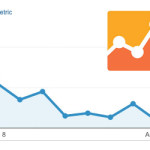I started learning web development back in 2010. There’s no all-encompassing blueprint for learning web development. No matter how much you learn when starting off, you still feel overwhelmed at the wealth of information out there. There’s always more to learn, and you’re unsure where to start. Here are a few things I’ve learned along the way.
Gain A Foundation
Learn the basics of the languages you will be working in. A strong understanding in the industry’s terminology will be crucial when learning. Imagine buying a shiny new IKEA shelf but you open the box to find the instructions are in Swedish. After assembling 95% of the shelf without the instructions it’s not quite working. You skipped over Step 3, installing the screw. You know what a screw is but it’s Swedish translation was foreign to you. Missing one little detail can result in a broken product. Great softwares used in web development have great documentation. Utilizing software to its full capability requires strong comprehension of the documentation.
There’s a lot of different technologies under the umbrella of web development. Try to understand how they work with each other. Knowing how to build websites makes you an amateur. Understanding their intricacies and how they work, makes you an expert.
In an older post, I overview some great resources that can give you a strong foundation.
Get Your Feet Dirty
Learn by doing. I’m sure we’ve all heard that term a million times. Before getting hired to build websites, I spent months learning the basics. I read countless instructional books and magazines. Was I confident when I was finally summoned to the task? Hell, no. Today, I’m sure most of us would run and hide at a glimpse back at our first projects. None of us start off as Picasso’s. But, we learn and we get better. Don’t get discouraged by the quality of old work. We’re in an industry where we’re always improving. We’re fortunate to be able to see the evolution of our skills as creators and artists.
Google Is Your Best Friend
There’s many times during a project where you’re going to face a problem or obstacle to overcome. Not sure why the slider is asking up, or why certain pages aren’t loading? Well then, Google it. Chances are you’re not the first person to have an issue. Search for keywords that describe your dilemma. Be specific enough with keywords such as what browser or what software you’re using. If you’re not finding anything then you’re using too many keywords. If what you’re finding isn’t relevant, than you’re using too few.
Websites like Sharepoint often have discussions about specific problems and how to fix them. There’s a good chance Sharepoint will come up in your search results. Often times I check their articles first, because I trust the quality of their content.
It can be difficult phrasing your exact problem to Google. Which is why gaining a foundation is so important.
Publish Your Ideas On A Blog
I was hesitant to blog for a while. That is, until I realized the two no-brainer benefits of blogging:
Strengthen your understanding on a topic
Write a blog where you articulate an idea or solve a problem. It forces you to gain a much stronger understanding of that concept.
Develop invaluable internal resources
Writing ‘tutorial’ posts is like creating a specific guide for yourself. Sometimes it’s hard to follow along with tutorials or guides written by others. It’s not only about helping others, it’s about helping yourself save countless hours in the future.
Not sure what’s worth blogging about? Sal Ferrarello had a great quote in his presentation on blogging at WordCamp US 2016. “If you have a problem you’re spending more than 15 minutes on, it would make a great blog post.”
Check Your Ego
Nobody likes a know-it-all. Web development is too vast of a field for someone to actually, “know it all”. We need to harbor the idea that there’s always more to learn. The tools we use are going to update and improve. We need to be right there with them when they do. Change is difficult. It’s difficult for us to give up on our old ways, especially when we come accustomed to them. But, we need to embrace new technology, and keep bettering ourselves as developers. Try learning a new big thing at least once a year.
Summary
Start. Learn the basics, including the terminology and different languages. Work. Take on projects that you’ve never done before. It will force you to learn new things. Google. When you’re faced with a difficult problem, look towards online communities and discussions. Blog. Writing about ideas and problems you’ve solved makes you a better developer. Learn. Recognize that there is always more to learn, and we should always strive to be better.


Leave a Reply